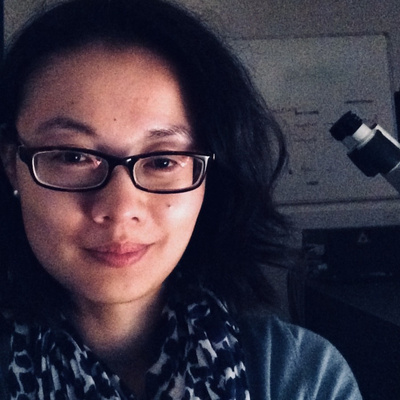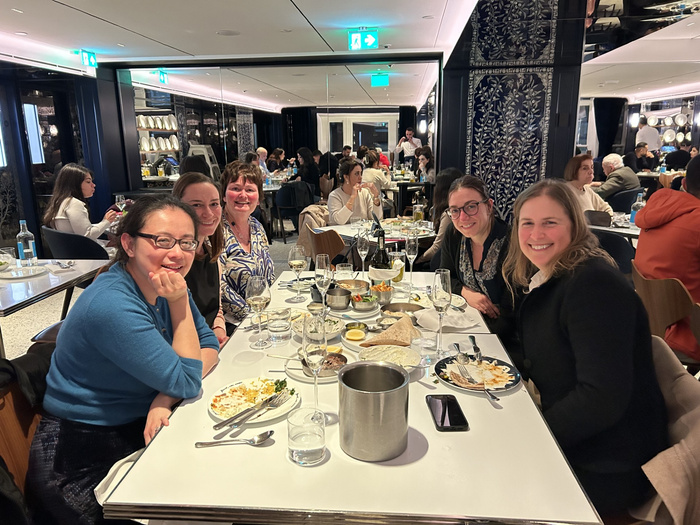The Trainees’ Research Medals are awarded to pathologists or scientists in training, whose research has the potential to benefit patients and have an impact on the wider pathology field. The College was delighted to receive so many fantastic applications, reflective of the high standard of research within pathology. We would therefore like to commend all applicants for the research presented in these papers.
Our 2024 Gold Research Medal winner is Dr Yisu Gu, a clinical haematology specialist. Dr Gu’s research paper looked at how immune microniches shape intestinal Treg function. We spoke to Dr Gu to find out more about her background, award-winning research and experience as a woman in science.
College members can read April's edition of the Bulletin here.

Congratulations on winning the College's Gold Research Medal. Please can you tell us a bit about your background? What led you to a career in pathology, and haematology in particular?
I wish I could tell you that I’ve always been passionate about haematology, but at the beginning I really wanted to be a surgeon. I studied medicine at Imperial College London and applied to the surgical program for my intercalated degree. My score wasn’t ranked high enough but there was a place available on the haematology course, which I joined instead. The teaching was based at Hammersmith Hospital with lectures by Professor Barbara Bain. She has inspired many great haematologists, so it was a very special experience to be taught by her for almost a year.
After medical school and still committed to a career in surgery, I carefully chose my house officer jobs based on the surgical rotations I really wanted to do. Coincidently, this included a rotation through haematology at Addenbrooke’s Hospital, which I enjoyed. Later, I applied for a surgical training number but wasn’t successful. A colleague, aware of my haematology experience, forwarded me a job advert for academic haematology training at Oxford. Here, I must thank Professor Paresh Vyas who interviewed me and offered this very first opportunity to embark on research at Oxford.
So, it seems every time I applied for surgery and missed out, haematology was right there to catch my fall! I have been in Oxford for over 10 years now and recently completed my haematology training. During this time, I developed a very strong and focused interest in T cell immunology, particularly in understanding the cellular communications and tissue neighbourhoods that promote T cell function. This was the basis of my PhD, and the work for this paper. This research was conducted in the lab of Professor Fiona Powrie at the University of Oxford. My PhD was a very special and unique experience, and I greatly enjoyed every challenge to develop my scientific thinking and skillset. I cannot recommend the Powrie lab highly enough if you are looking to develop a strong foundation in T cell immunology.
Your winning research studies the role of immune niches in shaping T cell function. Are you able to summarise this research and what you discovered?
Of course. We wanted to understand how T cell tolerance is established and maintained to commensal microbes across barrier surfaces such as the gut. Our focus was to understand how local responses within the tissue shape immunity.
We used a TCR transgenic mouse model where the specificity of the T cells was known, in our case to a Helicobacter Hepaticus antigen. We used a combination of experimental methods, including two-photon in vivo live imaging, photo-activation guided single cell RNA sequencing and spatial transcriptomics to follow the natural history of antigen-specific T cells through space and time. We found the T cell response is spatially compartmentalised, influenced by the local cellular neighbourhoods and crosstalk within and across immune niches in the tissue.
How do you hope your findings will influence future research or clinical practice?
My work proves that we must study the behaviour of T cells in situ in the tissue if we want to understand immunity. It also highlights the power of tracking an antigen-specific response in vivo, which can be very different to following a broad, polyclonal T cell response. Both these concepts are highly applicable and relevant in the study of health and disease, including cancer.
As a woman in science, have you faced any particular challenges? If so, how have you navigated them?

Both my PhD supervisor (Professor Fiona Powrie) and post doctorate supervisor (Professor Sarah Teichmann) are exceptional scientists, and I greatly admire their many accomplishments. They are true leaders in their field, and it is a huge honour to list them as my supervisors and continued mentors. I include here a photo from our recent paper celebratory dinner with Professor Fiona Powrie, Dr Emily Thornton, Professor Sarah Teichmann and Dr Raquel Bartolome-Casado: all strong women in science around the table!
My daughter is now 4 years old, and she was born in the middle of this project. Looking after a young child means less time at the bench. This research was entirely based in mice, and mouse work in general is very labour-intensive and time consuming. There are also certain constraints as to when the work must be done, making work–life balance challenging.
However, I realised quite early on that an important aspect of research isn’t conducted at the bench. It involves thinking through scientific problems, which can be done anywhere and at any time. Coming up with new ideas or designing a great experiment can save months. I work between Oxford and Cambridge, so my commute gives me a lot of thinking time, which I find extremely valuable.
How does it feel to have your work recognised by the College with this award?
It’s a huge honour to have this work recognised and highlighted by the College. Immune niches are present in other tissues, including the skin, the lung and within tumours, so the study of tissue immunity is highly relevant across specialties. It’s also fantastic to win the Gold Medal for Oxford haematology, which has been my home for the last decade.
What’s next for you—do you plan to continue research in this area, or explore new topics?
Certainly. The next step is to translate some of our key findings from the paper into the human disease setting. Understanding the in-situ microbe–immune crosstalk maps very nicely onto graft versus host disease – a common inflammatory complication affecting the gut following stem cell transplantation. I am very pleased to have recently joined the lab of Professor Sarah Teichmann (Cambridge Stem Cell Institute) to develop this exciting next project.
What advice would you give to other trainee pathologists pursuing research, particularly women or those from ethnic minority backgrounds?
Thank you for addressing this important question. There are unique challenges facing women from ethnic minority groups, and we are united through our personal experiences. There will be assumptions made about you, which are usually in the negative. My advice is to be explicitly clear about what your abilities and achievements are. You may find yourself standing alone at times, but I would say don’t be afraid to stand alone in pursuit of your goals.
Our 2024 research medal winners will be presented with their awards at the next New Fellows’ Ceremony.
If you enjoyed this, you may be interested in reading our blogs with previous award winners. Last year, we interviewed our 2023 Silver Research Medal winner Dr Joe Westaby, and Gold Research Medal winner Dr Mohsin Badat about their respective research papers.
We are keen to promote the fantastic work of our members through member spotlights. If you have a story you want to tell, please get in touch with the Member Engagement and Support team.

